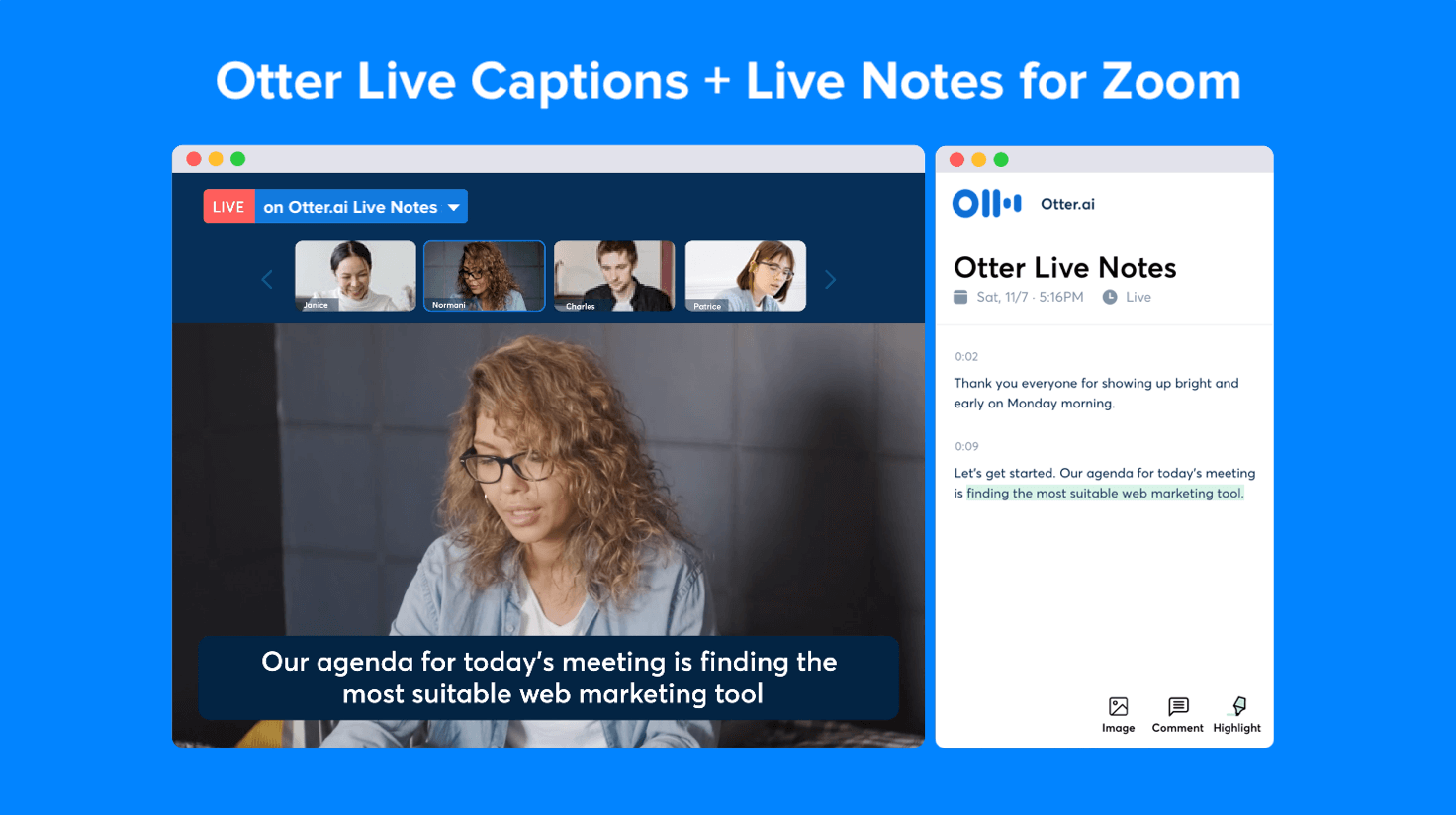Students often find themselves conducting lengthy, time-consuming interviews. These can take hours to listen to and transcribe by hand, but Otter makes the process a breeze by transforming interviews into easily navigable conversations.
Jeremy Brodeur recently completed a graduate program in Experience Design at Northeastern University in Boston. He first encountered Otter when he was working on his capstone.

“I was part of a team that was conducting expert interviews as part of a graduate school course capstone project, and needed a reliable way to transcribe the interviews we had already collected,” he said.
Jeremy and his team had tried another program before, but found that it wasn’t particularly user-friendly.
“Before Otter we were using a so-so voice to text transcription ai that delivered with comparable accuracy to Otter, but in an awful interface and with a terrible output,” he said. “We received one, unpunctuated, block of text and assigned a teammate the responsibility to listen to the file to correct transcription errors and add punctuation.”
It didn’t take Jeremy long to realize that Otter was different.
“After importing the first audio file, it became clear that Otter was really well designed,” he said. “We received easy to read, well-punctuated, and time-stamped transcripts that made it easy to identify important quotes for our research.”
Otter is unique because it’s an AI-powered app. This means that while other programs may also offer recording and transcription software, they are limited to just that-- transcriptions. While transcribed text is one component of Otter, the app’s other features make conversations live and navigable instead of static.
This is particularly useful during playback, where users have the option to control speed and eliminate silent moments, as well as easily fast forward or rewind.
Progress through the text is also indicated with highlighted text so users can keep track of where they are in a conversation.
“I loved the time-stamp feature and the way it differentiated between speakers,” Jeremy said. “While reviewing the text for transcription accuracy, I was blown away by the “bouncing ball” type word tracker.”
This made it much easier for Jeremy and his team to find the most important quotes from their interviews, which improved the speed of their research process.
“Once we found the quotes, we only needed to quickly listen to the file, follow the highlighted text as the audio played, and make transcription corrections as needed,” he said.
Otter was also a good choice for his project because the app is designed to work well for groups. Users can record a conversation within a group to share it with all members, or move an existing conversation to a group to allow all members to access it.
“It was much faster, easier to store, and easier to share,” Jeremy said.
Additionally, although he has only used it for interviews so far, Jeremy has noticed that the app has plenty of other potential uses for students.
“I shared it with family members who have hearing difficulty so that they could use it to record class lectures and assist them with note taking,” he said.
Otter has the potential to help students with accessibility and with efficiency. For extensive research projects that students like Jeremy complete during their educations, Otter makes a major structural difference in the interviewing process.
“When you’re sorting through hours of dialogue, it makes returning to key quotes as easy as flipping to a page in a book,” he said.
Sign up for a free account and make Otter part of your workflow today!
Whether you’re just getting started or you're already a pro, we’d love to hear your experience using Otter as a student.
Submit your story here for a chance to be featured on the Otter blog or social media channels. All featured students will receive 1 year free of Otter Premium.




















